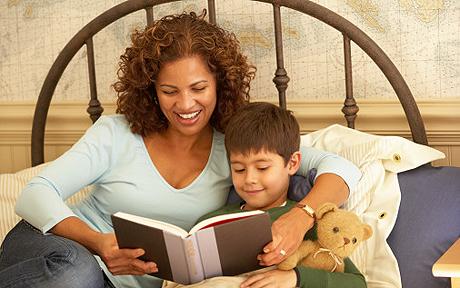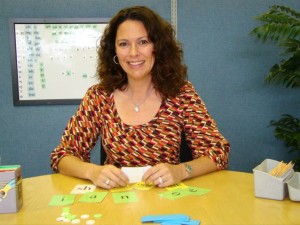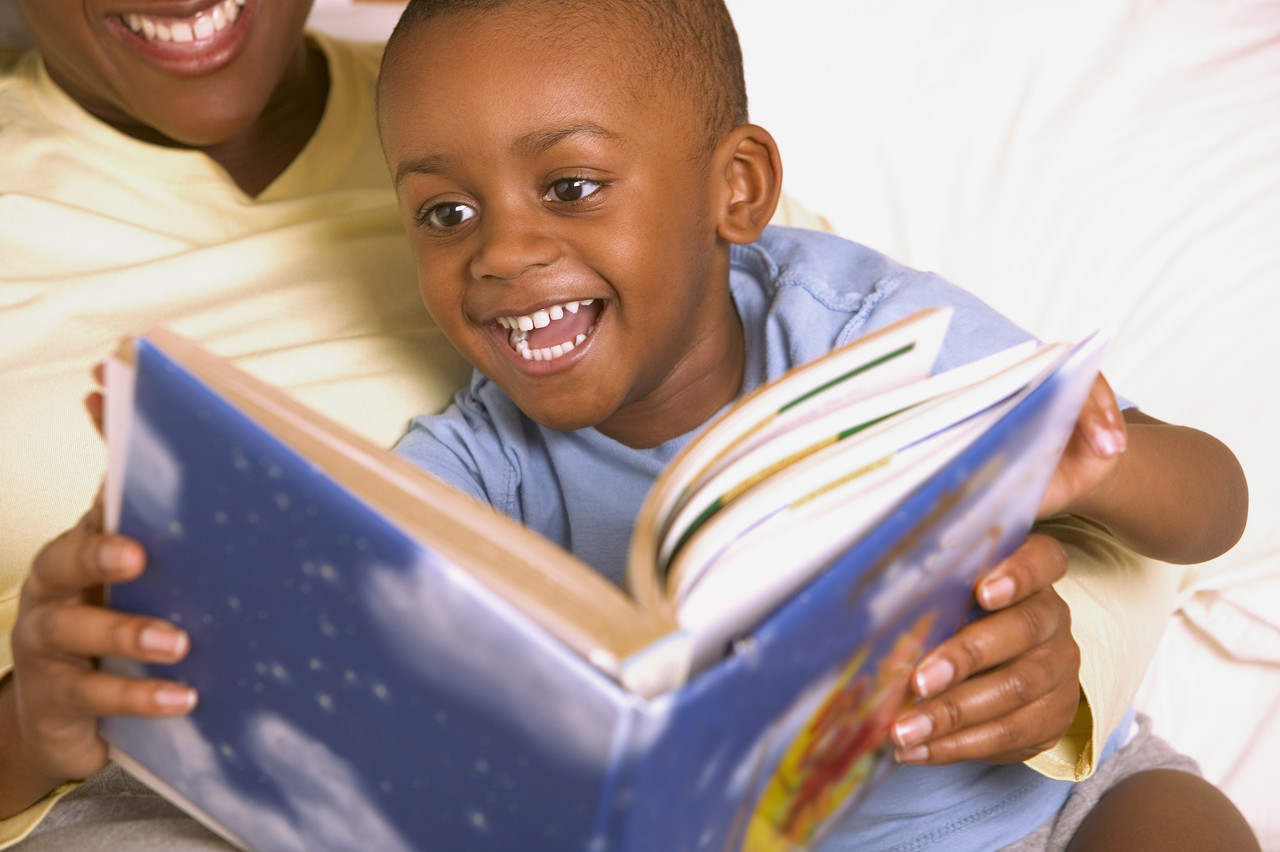
by PRIDE Reading Program Admin | May 8, 2016 | A PRIDE Post, Reading Skills
It is critical to identify a child’s reading problems before he or she fails. Even some children whom one might suspect do not need early assessment and monitoring should have it just the same. Some exceptionally bright children, for example, may learn to read early on and just skip over learning phonologic skills. These children memorize a lot of words very easily and quickly build a large reading vocabulary. Because these children are simply memorizing words without learning how to analyze them and break them apart, invariably there will come a point in time when they cannot decipher new, relatively long words, especially technical words, as in the sciences (Herbivore, Polynomial, Photosynthesis), or names of people or places in history or around the world (Picasso, Timbuktu, Kathmandu).
Without a foundation in phonological skills, these children will not have any strategies to deal with them. It is therefore best to ensure that all children’s basic phonologic skills are assessed right at the beginning and that they receive early and intensive instruction if necessary.
Here is a checklist to help you determine where your child is on the path to reading by the end of kindergarten.
- Knows that spoken words come apart and that letters represent these sounds.
- Easily names the letters of the alphabet, both uppercase and lowercase.
- Writes the letters of the alphabet.
- Can sound out the letters of the alphabet – both uppercase and lowercase.
- Can decode simple sound matches.
- Can decode simple 3 and 4 letter words.
- Uses invented spellings.
- Recognizes some common sight words.
- Knows about print conventions – reading from left to right, from the top of the page to the bottom.
- Has a growing vocabulary
- LOVES to read and looks forward to reading out loud.
First grade is one of the most important for a child on the road to reading. This is the crucial year where hopefully your child has broken the reading code. First grade builds on the foundation provided in kindergarten. Most children enter first grade ready to read. They leave first grade as “real readers.” Keep in mind that these major accomplishments don’t occur by chance; they are only made possible by well -structured and systematic reading instruction. If your child has the above-mentioned skills, then he or she is off to a running start in reading!
Learn more about the New PRIDE Reading Program
________________________________________________________________________________________________________

Karina Richland, M.A. is the Founder and Director of Pride Learning Centers, located in Los Angeles and Orange County. Ms. Richland is a certified reading and learning disability specialist. Ms. Richland speaks frequently to parents, teachers, and professionals on learning differences, and writes for several journals and publications. You can reach her by email at karina@pridelearningcenter.com or visit the Pride Learning Center website at: www.pridelearningcenter.com

by PRIDE Reading Program Admin | Mar 15, 2016 | ADHD, Dyslexia, Reading Skills, Summer Programs
Come to our Open House to learn about our specialized summer camp in three Orange County locations.
Our summer reading camp at PRIDE Learning Center will run weekly from June – August to accommodate busy schedules and traveling families. Children can attend from either 9:00am – 12:00pm or 12:30pm – 3:30pm Monday – Friday. All teachers are credentialed and deliver one-on-one Orton-Gillingham language and reading lessons. We will have locations in Newport Beach, Yorba Linda and Mission Viejo.
We will be in Orange County on Saturday, April 16th from 10:00am – 1:00pm at the PRIDE Mission Viejo Center. The address is 27001 La Paz Road #354 in Mission Viejo, CA 92692. Join us to learn more about our program, meet our staff and register for our summer camp. We will also be offering reduced rate assessments if you would like to bring your child in for this special event.
Individuals interested in the Open House in Orange County can call (949) 484-0230 to RSVP and schedule an assessment or email info@pridelearningcenter.com.

by PRIDE Reading Program Admin | Feb 15, 2016 | A PRIDE Post, Learning Disabilities, Reading Comprehension, Reading Skills
Reading is a highly complex, integrated activity that daunts as many as 33 percent of the population. Many children become proficient readers regardless of how they are taught. However, for children who experience difficulty learning to gain meaning from print, reading must be systematically and carefully taught. Mastering the following components of the reading process is essential if students are to become proficient readers.
Appreciation and enthusiasm for reading
It comes as no surprise that children who are passionate about reading are more skillful readers. Reading is more exciting to students when they are:
Read to frequently
Allowed to choose their reading material
Exposed to a wide variety of interesting reading materials
Phonemic awareness
Successful reading depends upon understanding that words are composed of individual sounds. Children need direct teaching in the skills of breaking words into their component sounds and in blending individual sounds together into words. Phonemic awareness is one of the most important skills upon which early reading depends. Children who have poorly developed phonemic awareness skills are at great risk for becoming poor readers.
Phonics and Decoding
Letters of the alphabet are a code representing the sounds in words. Reading involves “decoding” or translating written words into their spoken equivalents. The early stage of decoding instruction emphasizes the correspondence between individual letters or pairs of letters (such as “oa”) and the sounds they represent. Later reading instruction stresses rapid identification of larger units such as syllables. Identifying larger phonetic elements is termed structural analysis. Once a student learns the correspondence between sounds and print, he or she has become a proficient decoder.
Fluent, Automatic Reading of Text
However, in order to become an efficient reader, the decoding process must become fast and accurate. When decoding is efficient, attention and memory processes are available for comprehending what is being read. Reading fluency training is vital for strengthening a student’s comprehension skills. Children should have ample practice reading material that is not difficult for them to decode. This level is referred to as the “independent reading level.” Frequent reading of material at a child’s independent reading level builds automatic word recognition and frees up a child’s mental abilities for comprehension.
Background Knowledge
Comprehension depends heavily on a student’s knowledge of the world. Therefore, the skill of reading comprehension begins to develop long before children enter school. Children who have more experiences of all types, have more background knowledge upon which to base their understanding of written material. Parents help their child develop reading skills when they visit the museum, the park and even the store. Parents and teachers should also read to students in order to help them create a stockpile of information that will facilitate reading comprehension. The best reading instruction teaches a student to access background knowledge while reading.
Vocabulary
Comprehension depends on having a large vocabulary. Children who read widely learn word meanings at a faster rate than children whose reading is more limited either in scope or quantity. During their school years, children should be learning several thousand new words per year. Most of these words are learned by reading.
Written Expression
Reading and writing are two sides of the same coin. Effective reading instruction must include training in expressing one’s thoughts in writing. Children should be given daily practice in organizing and expressing their knowledge through writing. This builds their ability to decode and comprehend the thoughts of other writers.
The key to helping students who experience difficulty in learning to read is to identify a student’s specific reading problems and devise programs which capitalize upon a student’s unique learning strengths. A curriculum that focuses on specific, appropriate, and practical learning strategies will best help students become proficient, efficient and independent readers.
An appropriate literacy goal for all students should be that each is fully able to use reading as a springboard for independent, critical thought and expression. Reading fuels the highest levels of the thinking process. Good readers are armed with tools to become strong thinkers.
Learn more about the New PRIDE Reading Program
________________________________________________________________
Dr. Kari Miller is a board certified educational therapist and director of Miller Educational Excellence, a full-service educational therapy facility in west Los Angeles.
You can visit her website at www.MillerEducationalExcellence.com or email her at klmiller555sbcglobal.net

by PRIDE Reading Program Admin | Feb 8, 2016 | A PRIDE Post, Reading Fluency, Reading Skills
Reading is a skill that needs to be practiced regularly. Without practice, young readers will not develop the vocabulary, the skills, and the fluency necessary to become strong readers. But many children, even those with strong reading skills, do not get enough practice and as a result become disinterested in reading, and can quickly become discouraged. Here are some practical tips for when your chid doesn’t want to read:
- Find books with cartoons or humor — which only a child would find amusing.
When your child doesn’t want to read… don’t make everything a learning lesson. Letting children read books such as Captain Underpants or Diary of a Wimpy Kid will keep them engaged and entertained. Although adults might find the language and humor distasteful, children find it very funny and are therefore more motivated to read.
- Zero in on your child’s passions and choose books and magazines focused on areas of interest.
If your child doesn’t want to read try finding books on specific topics to keep your child’s interest, such as science, baseball, American Girl dolls, etc. Children who already have the background knowledge, language and vocabulary before beginning a book will have an easier time getting through the reading. Order a magazine subscription to Sports Illustrated for Kids or Nickelodeon. Children love receiving mail and reading ‘their’ magazines.
- Get your child an email account and, together, check it regularly.
Using the computer to read and write is a huge advantage for most students. By letting young children write and send email, they practice reading, writing and spelling. Teach your child how to use spell check before sending off messages. Be sure to monitor your child’s ‘pen pals’ – who is your child writing to and receiving mail from? Let your child pick out a few family members, including grandparents and maybe two or three friends. You will find that by using email regularly, your child becomes very strong in typing (keyboarding) and using the computer.
- Find an author that your child likes and stick with it.
If your child loves reading Hank Zipzer by Henry Winkler or Tales of a Fourth Grade Nothing by Judy Blume, then you have found a writing style which stimulates your child’s interest. Go through the entire series. Don’t worry if the reading is below grade level: your child is reading for pleasure and for practice. Also remember, just because you loved a certain author or series when you were a kid, this doesn’t mean your child will love the same books you did. Browse the bookstore or library and find the newest, most modern series. Usually these books contain language and themes to motivate the most reluctant reader. Kids need to relate to what they are reading, and modern language usage helps.
- Let your child talk to you about the book they are reading.
When we adults read books we enjoy, we like to talk about them. After reading a book, we don’t necessarily want to write a summary, book report or make a project of it. We just want to discuss it with someone else. Look interested in what your child is reading (yes, even if it is Captain Underpants) and ask questions and have your child tell you about it. Laugh with your child about the funny parts (even at the bathroom jokes) and help your child feel good about reading.
Learn more about the New PRIDE Reading Program
__________________________________________________________________________________________________________
Karina Richland, M.A., E.T. is the Managing Director of Pride Learning Centers, located in Los Angeles and Orange County. Ms. Richland is a reading and learning disability specialist. Ms. Richland speaks frequently to parents, teachers, and professionals on learning differences, and writes for several journals and publications. You can visit the Pride Learning Center website at: www.pridelearningcenter.com

by PRIDE Reading Program Admin | Dec 29, 2015 | A PRIDE Post, Reading Skills
Happy New Year!
New Year’s resolution for kids give a perfect opportunity for you and your child to discuss areas in which there’s room for improvement. The one resolution you should always try and make as a family is to spend more time reading. Why is it that some children seem to take to reading with no effort and no nagging, while other children would rather do almost anything than read? If you are a parent interested in ways to inspire those reluctant readers in your family, then this article will offer valuable information for you.
Make the most important New Year’s Resolution for your kids reading this year. Reading is a skill that needs to be practiced regularly. Without practice, young readers will not develop the vocabulary, the skills, and the fluency necessary to become strong readers. But many children, even those with strong reading skills, do not get enough practice and as a result become disinterested in reading, and can quickly become discouraged. Here are some practical tips for encouraging reluctant readers and making those New Year’s resolutions with your kids:
• Find books with cartoons or humor — which only a child would find amusing
Books that make children laugh are more engaging for young readers. Not everything needs to be a learning lesson. Letting children read books such as Captain Underpants or Diary of a Wimpy Kid will keep them engaged and entertained. Although adults might find the language and humor distasteful, children find it very funny and are therefore more motivated to read.
• Zero in on your child’s passions and choose books and magazines focused on areas of interest
Find books on specific topics to keep your child’s interest, such as science, baseball, American Girl dolls, etc. Children who already have the background knowledge, language and vocabulary before beginning a book will have an easier time getting through the reading. Order a magazine subscription to Sports Illustrated for Kids or Nickelodeon. Children love receiving mail and reading ‘their’ magazines.
• Get your child an email account and, together, check it regularly
Using the computer to read and write is a huge advantage for most students. By letting young children write and send email, they practice reading, writing and spelling. Teach your child how to use spell check before sending off messages. Be sure to monitor your child’s ‘pen pals’ – who is your child writing to and receiving mail from? Let your child pick out a few family members, including grandparents and maybe two or three friends. You will find that by using email regularly, your child becomes very strong in keyboarding and using the computer.
• Find an author that your child likes and stick with it
If your child loves reading Hank Zipzer by Henry Winkler or Tales of a Fourth Grade Nothing by Judy Blume, then you have found a writing style which stimulates your child’s interest. Go through the entire series. Don’t worry if the reading is below grade level: your child is reading for pleasure and for practice. Also remember, just because you loved a certain author or series when you were a kid, this doesn’t mean your child will love the same books you did. Browse the bookstore or library and find the newest, most modern series. Usually these books contain language and themes to motivate the most reluctant reader. Kids need to relate to what they are reading, and modern language usage helps.
• Let your child talk to you about the book they are reading.
When we adults read books we enjoy, we like to talk about them. After reading a book, we don’t necessarily want to write a summary, book report or make a project of it. We just want to discuss it with someone else. Look interested in what your child is reading (yes, even if it is Captain Underpants) and ask questions and have your child tell you about it. Laugh with your child about the funny parts (even at the bathroom jokes) and help your child feel good about reading.
• Limit media.
Television, computer time, and video games can quickly take up all of your child’s free time. Limit the amount of media you allow your child and your family will have more time for reading.
Enjoy the New Year and keep reading!
Learn more about the New PRIDE Reading Program
__________________________________________________________
Karina Richland, M.A., E.T. is the Director and Founder of Pride Learning Centers. A former teacher for Los Angeles Unified School District, Ms. Richland has devoted her life to the field of reading and learning disabilities, working as an educational therapist and director of Pride Learning Centers. Ms. Richland speaks frequently to parents, teachers, and professionals on learning differences, and writes for several journals and publications. You can visit her website at: https://www.pridelearningcenter.com

by PRIDE Reading Program Admin | Jun 15, 2015 | A PRIDE Post, Reading Skills, Summer Programs
Summer break is finally here! Although our kids deserve a vacation from the daily homework load – we don’t want to completely let their reading skills slip during this summer vacation. Here is a very family-friendly list of activities you can try at home this summer with your kids to keep the reading skills sharp and active in those kiddies:
- Cook with your kids. Cooking is a great way for the family to spend fun and educational time together. Reading food labels and recipes can help your children improve their reading skills and learn the meanings of unfamiliar words. You can also work up an appetite by reading a story about food. Then make and eat the food you read about.
- Listen to audio books in the car while traveling. Spending time listening to books strengthens listening, concentration and imagination skills in children. It also gives them an opportunity to improve vocabulary and language skills. Take your child’s iPod along on car trips or while you are running errands during the summer break.
- Take your child grocery shopping. Let your child carry the shopping list as you shop. They can read off the items you need. Label reading is also a great reading task for a child. You can have them look up the ingredients on the labels or ask them to research which breakfast cereal has the least amount of sugar in it.
- Play board games. Here is your opportunity to expand your child’s mind while also having fun and spending time together. Games like Scrabble, Boggle and other word games are great for challenging the minds of kids. Some games require reading for clues or reading directions.
- Read about your vacation destination before you go. Have your child read about your travel spots ahead of time and help plan the trip for you. If you go camping, explore the wildlife and scenery on-line.
- Pick your favorite author. Try to read all the books by a favorite author and list them on a chart. Then write a letter to the author. Most authors have their own websites with contact information, book titles, games and more.
- Visit a museum or zoo. There will be lots and lots of signs and descriptions to read which will encourage non-fiction reading vocabulary.
- Go to the library. Access all those wonderful library resources, including reading incentive programs and opportunities for volunteer work for older children.
- Plant a vegetable garden. Read books together about gardening. Read directions to plant seeds. Children can research online for growing tips and learning how to take care of their vegetables.
- Campfire Stories. Set up a tent in the backyard and have your children take turns reading campfire stories. Pick out some fun scary mysteries and don’t forget the s’mores.
- Don’t watch TV – read it! If it is available, have your child watch close captioned TV with the sound off. Not only builds reading skills but also builds empathy for those who are hearing impaired.
- Keep a summer scrapbook. Tape in souvenirs of your family’s summer activities such as pictures, ticket stubs, photos, etc. The kids can write captions and read them aloud as you look at the book together.
Learn more about the New PRIDE Reading Program
_______________________________________________________________

Karina Richland, M.A. is the Founder and Director of PRIDE Learning Centers, located in Los Angeles and Orange County. Ms. Richland is a certified reading and learning disability specialist. Ms. Richland speaks frequently to parents, teachers, and professionals on learning differences, and writes for several journals and publications. You can visit the Pride Learning Center website at: www.pridelearningcenter.com








